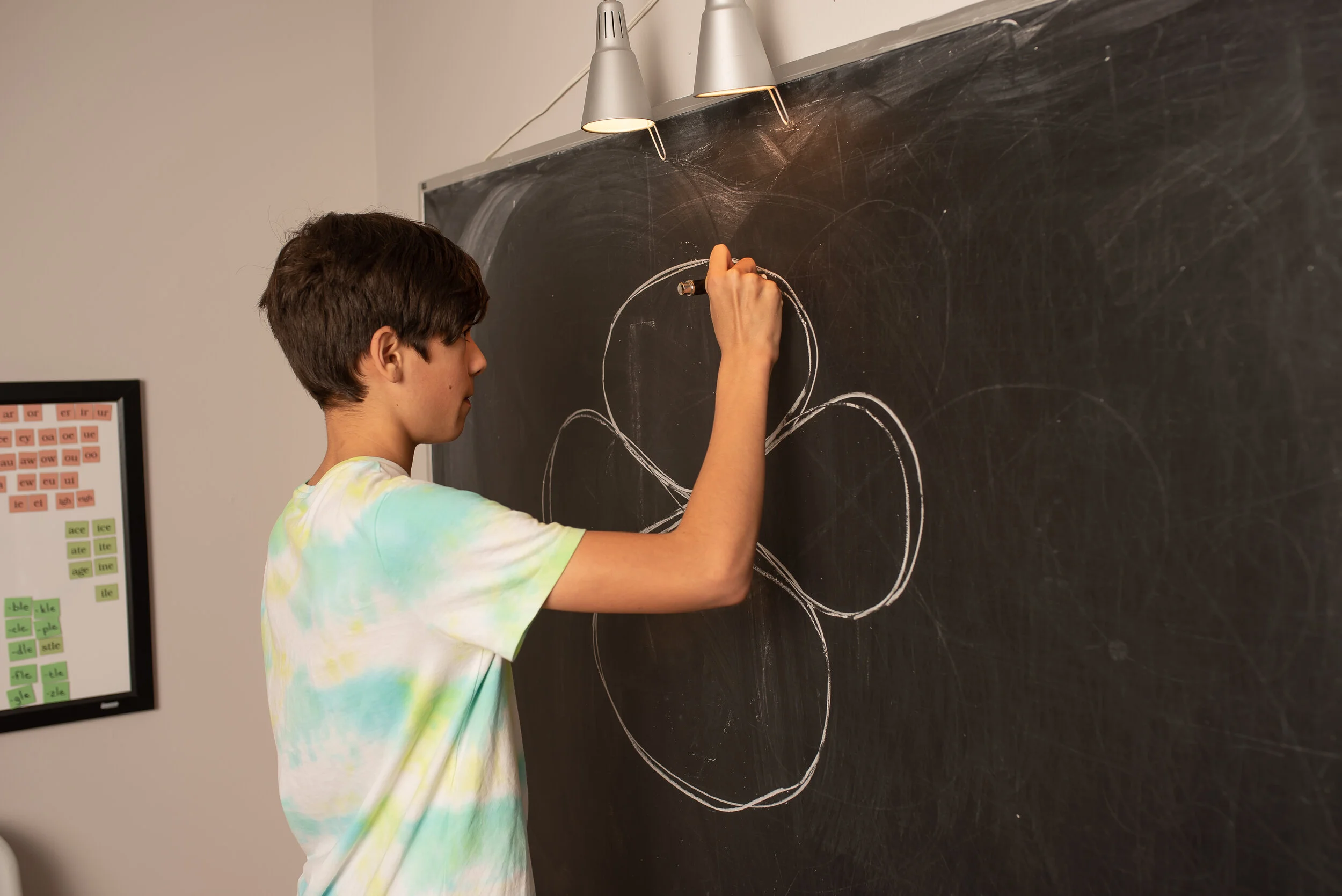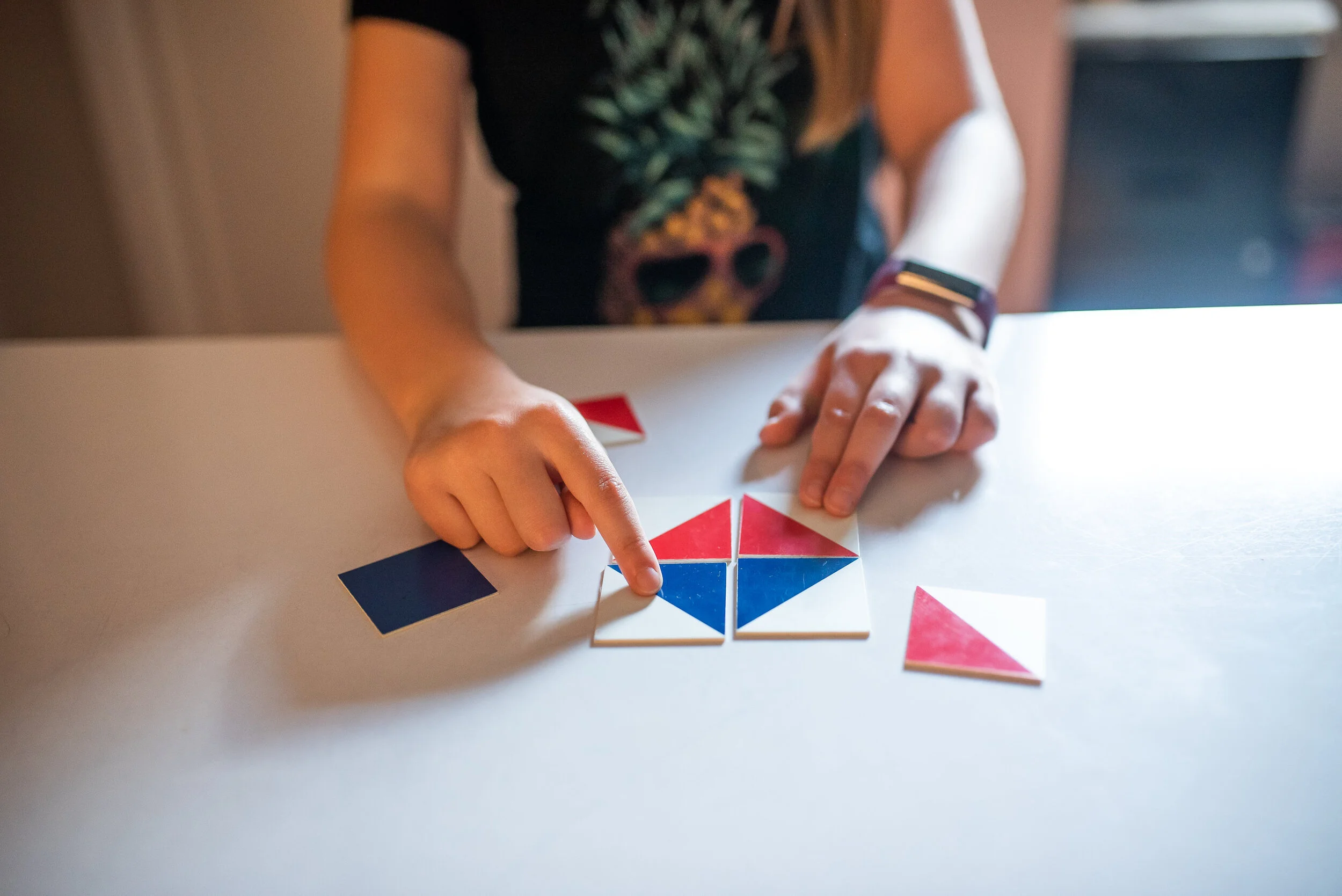
Educational Therapy
What is educational therapy?
The focus of this one-on-one intervention is to address the underlying causes of learning difficulties, rather than simply treating the symptoms. The process starts with a thorough evaluation, identifying strengths and weaknesses. The educational therapist then customizes rigorous sessions choosing from dozens of activities and brain exercises designed to strengthen those specific weakness. Over time and with hard work, students gain skills that allow them to succeed as independent learners. Since 80% of people with a specific learning disability have dyslexia, these educational therapy techniques often combine with dyslexia intervention to provide powerful help for struggling learners.
How is educational therapy different from tutoring?
Tutoring addresses the surface issues of learning – memorizing lists of facts in order to pass the next test. Educational therapy is based on the concept of deficit stimulation, that is, identify underlying weaknesses that are causing problems with learning and actively strengthening them with regular, stimulating, challenging exercise. The end result is a learner who can thrive in any academic environment as an independent learner. An educational therapist is a thoroughly equipped educator, specifically trained in the neuroscience of learning, prepared to deliver rigorous sessions characterized by Socratic questioning, reciprocal language, and critical thinking. Educational therapy sessions, typically twice weekly for 80 minutes, are demanding but highly rewarding as the learner begins to see the results of his hard work.
Would my child benefit from educational therapy?
Yes, your child would likely benefit if he or she struggles with any of the following:
Difficulty sustaining attention
Has ADHD
Difficulty with eye-hand coordination
Has poor handwriting
Confusion with left and right and other directions
Mixed dominance, unsure if left- or right-handed
Can sound out words when reading, but doesn’t remember or understand them
Limited vocabulary
Difficulty with organization or planning
Can’t remember more than a few verbal instructions
Can’t hold information in her head while solving complex problems
Struggles with visual memory or auditory memory




